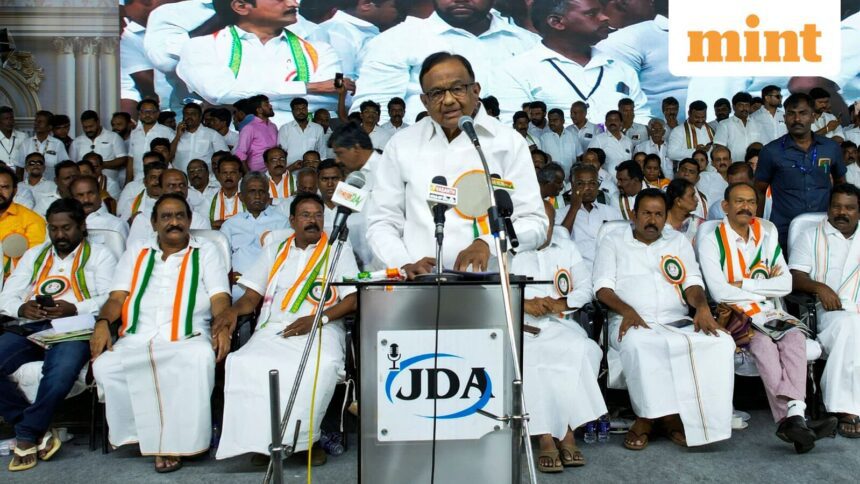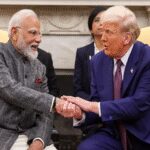Former Union Home Minister P. Chidambaram has publicly acknowledged that the Congress-led United Progressive Alliance (UPA) government chose not to retaliate against Pakistan following the 2008 Mumbai terror attacks due to significant international pressure and the stance of the Ministry of External Affairs.
In a recent interview, Chidambaram admitted that while “retribution crossed my mind,” the government ultimately opted against military action. He noted, “The whole world descended upon Delhi to tell us don’t start a war,” adding that he took on the role of Union Home Minister shortly after the attacks, which resulted in the deaths of 175 people.
Chidambaram recounted a meeting with Condoleezza Rice, then U.S. Secretary of State, who visited India shortly after he assumed his ministerial position. Rice urged him and the Prime Minister, “please don’t react,” which prompted Chidambaram to contemplate the issue but maintain that the final decision would rest with the government. He remarked that discussions about potential retaliation involved both the Prime Minister and other key figures, emphasizing that the Ministry of External Affairs heavily influenced the decision to refrain from a physical response.
The Mumbai attacks, conducted by a group of 10 terrorists affiliated with Lashkar-e-Taiba, targeted various locations, including the Chhatrapati Shivaji Maharaj train station and the Taj Mahal Palace and Tower hotel on November 26, 2008. One of the attackers, Ajmal Kasab, was captured and subsequently executed in 2012.
Chidambaram’s comments sparked immediate backlash from leaders of the Bharatiya Janata Party (BJP), who labeled his admission as “too little, too late.” The BJP has consistently criticized the UPA’s response to the Mumbai attacks, contrasting it with the more aggressive posture taken by the BJP-led National Democratic Alliance (NDA) government, which has enacted surgical strikes in response to terror attacks in 2016 and 2019, among other military responses.
BJP spokesperson Sudhanshu Trivedi highlighted that a joint declaration with Pakistan, signed just nine months after the attacks during a meeting in Sharm El-Sheikh, Egypt, demonstrated what he described as a troubling inclination to engage diplomatically with Islamabad. He referenced the conclusion of the declaration, which mentioned Balochistan, as indicative of the UPA’s readiness to acknowledge politically sensitive issues.
BJP spokesperson Shehzad Poonawala alleged that while Chidambaram might have been initially resistant to assume the role of Home Minister, he nonetheless desired military action against Pakistan but was ultimately swayed by others’ decisions, including potential influences from then Prime Minister Manmohan Singh and Congress leader Sonia Gandhi.
Union Minister Pralhad Joshi stated, “After 17 years, Chidambaram, Former Home Minister, admits what the nation knew—26/11 was mishandled due to pressure from foreign powers. Too little, too late.”










